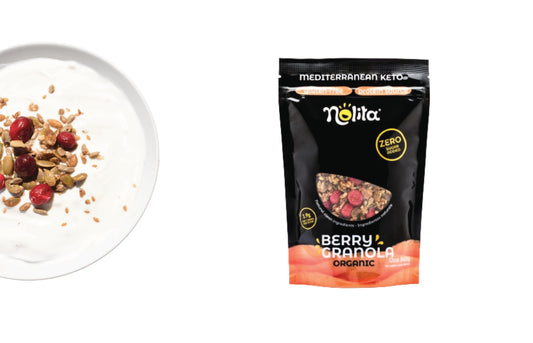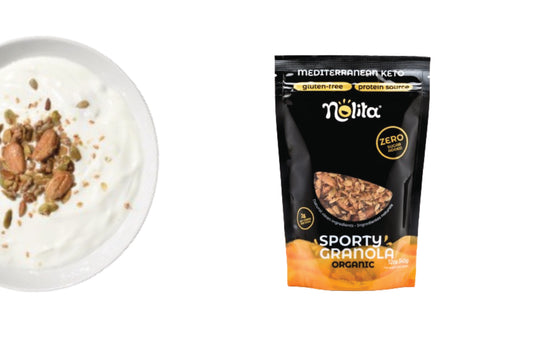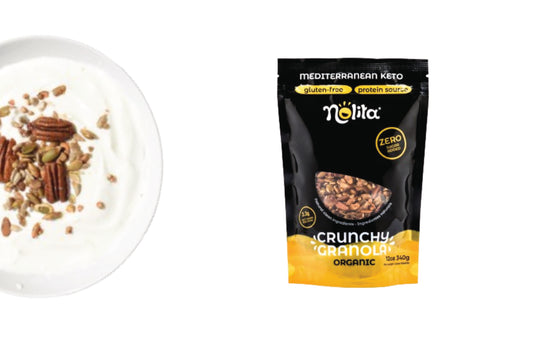Intermittent fasting - what is it?
Also called time restricted feeding or intermittent fasting, intermittent fasting is a food model that consists of alternating long periods without eating (between 16 and 48 hours), with periods of time in which eating is allowed and continuing with the usual intake. So, as an example, a person could start their meals at 1 pm, and finish at 9 pm.
What to watch out for after intermittent fasting?
Although not recommended for all people, this is a strategy that can result and lead to weight loss, because, when well executed, it guarantees the caloric deficit, that is, the guarantee of weight loss, due to the reduction of consumption. daily energy.
For anyone who is a fan of this diet, you certainly often wonder what you should eat after intermittent fasting. Some people may need some guidance in this regard, as they tend to consume high-calorie and low-nutrition foods.
In this way, it is important to know how to guarantee a good nutritional supply after the period in which no food is ingested.
As recommended for a normal eating pattern, after intermittent fasting, careful and healthy eating is recommended. Therefore, it is equally important to consume nutritionally rich foods, capable of guaranteeing a good supply of vitamins and minerals to the body [1].
After fasting, it is advisable to start the first meals cautiously, so you should eat more slowly and chew your food well. To accompany the first meals, you can use some spices, such as fennel, ginger and turmeric, which help to digest food better [2].
What is advisable to consume after the fasting period?
You should opt for foods such as fish and lean meats, legumes, whole grains and fresh vegetables, among others such as those listed below. These are options that, in addition to being healthy, are easily digested, promote the maintenance of muscle mass and satiety [1].
Depending on each person's taste, recipes should be planned with those same ingredients and, if possible, organized for the week's meals [3].
Food suggestions to consume after the fasting period:
- white fish (dorado, sole, cod, hake, monkfish, sea bass…), white meat (turkey, chicken, duck), whey or vegetable protein, tofu;
- lettuce, courgette, spinach, arugula, chard, cauliflower, chayote, sweet potato, eggplant, beetroot, corn, cucumber, asparagus, broccoli, leek;
- orange, banana, watermelon, mango, avocado, red fruits, tomato, apple, carrot, pear, figs, kiwi;
- brown rice, wholemeal pasta, oatmeal, rice flour, buckwheat;
- chickpeas, peas, lupines, beans, peanuts, soybeans;
- almonds, cashews, hazelnuts, walnuts, pine nuts etc.
Can we drink while fasting? If yes, what?
Whether or not you practice the intermittent fasting method, it is always important to maintain a good state of body hydration, ingesting about 2 liters of water a day. [two]
Along with this, water is also a strong ally as it contributes to the feeling of satiety. Thus, drinks without or with very few calories, non-carbonated and sugar-free, such as:
- natural water;
- coffee;
- tea.
And physical exercise? Is it recommended?
The current scientific evidence is still dubious regarding the effectiveness of fasting physical exercise as a way to reduce body fat, when compared to the same practice in moments after a meal [4].
However, the practice of physical exercise is always recommended for the adoption of a healthy lifestyle. Thus, to be carried out, physical exercise must be moderate, controlled and of short duration, examples being walking, cycling, yoga, swimming, pilates and low-intensity weight training [3].
Conclusion
"What to eat after intermittent fasting?" is probably one of the most pertinent and recurring questions.
Most people turn to this diet because it can have cardiovascular, anti-aging and weight loss benefits [5]. However, if performed incorrectly, these objectives will not be achieved. Eating unhealthy and nutrient-poor foods and lack of hydration are very relevant factors for the success or otherwise of intermittent fasting.
In addition, physical exercise does not have to be ruled out, it should only be carried out in moderation and without excessive loads.
However, before starting intermittent fasting, you should always consult your doctor and nutritionist, who will tell you which food options are best for you.
The Bottom LineFor the success of intermittent fasting, it is advisable to:
|
Photo:@nadineprimeau
Bibliography
[1] Wilhelmi de Toledo, F., Grundler, F., Bergouignan, A., Drinda, S., & Michalsen, A. (2022). Safety, health improvement and well-being during a 4 to 21-day fasting period in an observational study including 1422 subjects. PLOS ONE. Retrieved 28 March 2022, from: https://journals.plos.org/plosone/article?id=10.1371/journal.pone.0209353.
[2] Foster, A. (2022). The Ultimate Guide to Fasting. Angelafosterperformance.com. Retrieved 2 May 2022, from https://angelafosterperformance.com/wp-content/uploads/2020/06/FASTING-EBOOK-1.pdf.
[3] Brittain, K. (2022). Manage Sugar With Intermittent Fasting | Well Wisdom. Well Wisdom. Retrieved 2 May 2022, from https://www.wellwisdom.com/blog/what-is-the-best-intermittent-fasting-food-plan/.
[4] Schoenfeld, B. (2011). Does cardio after an overnight fast maximize fat loss? Disponível em: https://journals.lww.com/nsca-scj/Fulltext/2011/02000/Does_Cardio_After_an_Overnight_Fast_Maximize_Fat.3.aspx#pdf-link)
[5] Zouhal H., Saeidi A., Salhi A., Li H., Essop M. F., Laher I., et al. (2020). Exercise training and fasting: current insights. Open Access J. Sport. Med. 11 1–28. 10.2147/OAJSM.S224919 [PMC free article] [PubMed] [CrossRef] [Google Scholar]




